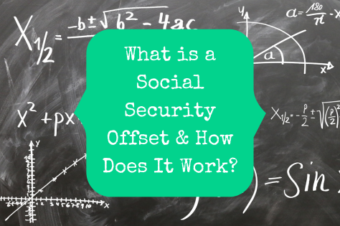
You didn’t opt out of Social Security because it doesn’t violate your conscience. But that doesn’t mean you like paying the tax. There are probably a lot of things you would rather do with that money. Do you have any other options?
Yes, you do. There is a legal way for you to avoid paying Social Security and Medicare taxes without opting out. And not only does it save you on taxes, but it’s really good for your future self as well. How do you do it? Make pre-tax contributions to your church’s retirement plan.
Pastors Pay Payroll Taxes Under SECA
Let me explain how that works. First, I have to remind you that pastors pay payroll taxes as if they were self-employed, under SECA. Confused? Read this article.
Because you pay as if self-employed, your payroll taxes do not come out of your salary automatically as they do for other employees. You calculate your payroll taxes when you file your income tax return each spring. To do so, you take your taxable wages reported on your W-2 and add them to your housing allowance and pay taxes on the total.
How Pre-Tax Retirement Contributions Work
Now we need to look at how retirement contributions work. When you make contributions to an employer’s retirement plan, your employer withholds the money before they pay you (and then sends it to your retirement account). The money never passes through your hands.
If they are pre-tax (not Roth) contributions, then they never show up in your taxable income, either. That’s why they’re called pre-tax because they are taken out before your income is calculated for income tax purposes. You pay your income taxes on that money when you withdraw it from the account in retirement.
Most employees still have Social Security and Medicare taxes taken out of the money that they contribute to their employer’s retirement plan. But not pastors. Because your church can’t withhold those taxes for you, you pay them on your own. You calculate those taxes based on what is reported as taxable income to you.
Lucky you, your retirement contributions don’t show up as taxable income. So you don’t have to pay Social Security and Medicare taxes on any of your pre-tax contributions to your church’s retirement account. And you don’t pay the taxes when you take the money out in retirement, either, you only have to pay income taxes. (Don’t worry, the IRS knows about this loophole and they are okay with it.)
How It Works In Real Life
In case you weren’t able to follow all of that, let me give you an example (ignoring any housing allowance for simplicity’s sake). Let’s say you earn $60,000 and you make pre-tax contributions to your church’s 403(b) totaling $10,000. Since the contributions are pre-tax, your W-2 only shows $50,000 of income. If you hadn’t contributed to a retirement plan, you would have a taxable income of $60,000.
What is the impact of that difference in taxable income? SECA taxes are 15.3%, though because of the way they are calculated they actually net out to 14.13%. You save $14.13 in taxes for every $100 pre-tax contribution you make. In our example, that’s a savings of $1,413! Pretty nice, right?
Claiming A Housing Allowance In Retirement
The icing on the cake is that you may even be able to avoid paying income taxes on the money when you take it out in retirement. Yes, you read that right. There is a way to get this money completely tax-free. How? Claim it as a housing allowance. Pastors are allowed to use money from a church retirement account as a housing allowance in retirement. This article elaborates on how that works.
How To Start A Church Retirement Plan
Does this article make you sad that your church doesn’t sponsor a retirement plan for you to contribute to? Don’t be sad, just start one! It’s not as expensive and onerous as you think. I was genuinely surprised by how affordable it can be when I sat down to discuss it with Paul McWilliams, an advisor who helps churches set up retirement plans. Here is a post he wrote for Pastor’s Wallet on setting up a church retirement plan.
If you’re thinking of starting a retirement plan, contact Paul or do a quick Google search to find some of the other companies that offer that service. I and my financial planning firm, Guide Financial Planning, do not set up retirement plans. At the moment, we only provide services for individuals.




9 Responses
Tim
October 11, 2021Great blog post and title. I already knew the information, but this grabbed my attention and was a great way of highlighting part of the value of a church retirement plan.
Amy
October 13, 2021Thanks, Tim!
Frank
February 27, 2023Hi Amy,
I’ve been looking for the IRS publication that explains this concept, but I have not been successful. Can you please point me to the document?
Thanks,
Frank
Amy
April 9, 2023You can find it on page 8: https://www.irs.gov/pub/irs-pdf/p517.pdf
Angela Walker
January 12, 2024My husband (also my pastor!) has a salary reduction plan already set up with our SBC financial organization. Do these contributions have to be reported on Schedule SE as self-employment income?
Thanks, and love your site!
Angela
Amy
January 22, 2024Angela, the answer is no. Any pre-tax retirement contributions made by pastors also avoid SECA taxes. That’s one of the great little-known benefits of saving into a church retirement plan.
Angela Walker
January 22, 2024Wow! I wish I had known this long ago! Thanks for being such a wonderful resource for pastors on these confusing issues!!
Amy
January 22, 2024I’m honored to be able to help, Angela!